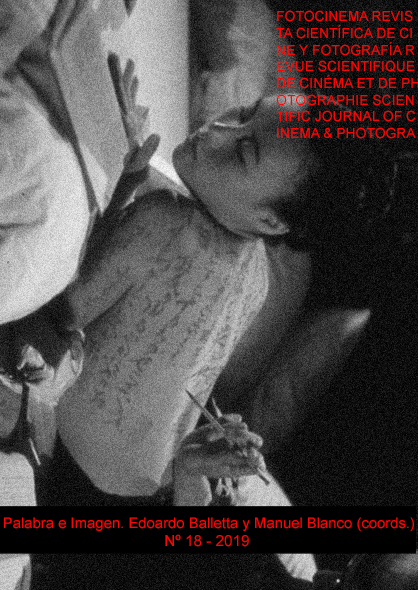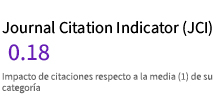Metaphors about time and perception. A study about Villeneuve’s movie: Arrival
DOI:
https://doi.org/10.24310/Fotocinema.2019.v0i18.5530Keywords:
Metaphor, Perception, Language, Philosophy, Sci-Fi, TimeAbstract
Movies has become a field of philosophy experimentation and diffusion. Is possible to recognize several main philosophy subjects through many narratives. And Sci-Fi movie genre has become especially propitious to do this. Through the Sci-Fi is possible to create an environment (a place and a time) where reach the limits of main postulates of philosophy and its implications. This is the situation in Arrival, the Denis Villenueve's film from 2016. Is an story about aliens but without war and destruction. In The Arrival, the matter is about the principles of linguistic relativism. Following the George Lakoff and Mark Johnson´s work through the fiction character Louise Banks and the reflexion about language. The Lakoff and Johnson's work in relationship to the studies of the metaphor set the context and the explanation to this story. This work is focussed on the consequences of language on human perceptions. The consequences of The Arrival movie audience questions about to learn an alien language and about the human language.
Downloads
Metrics
Publication Facts
Reviewer profiles N/A
Author statements
Indexed in
-
—
- Academic society
- N/A
- Publisher
- Universidad de Málaga
References
Blanco, A. (2017). La relatividad lingûìstica (variaciones filosóficas). Madrid: Ediciones Akal.
Chiang, T. (2015). La historia de tu vida. Madrid: Alamut.
Conesa, F. & Nubiola, J (1999). Filosofìa del lenguaje. Barcelona: Herder.
Ibañez, T (2001). Municiones para disidentes. Realidad-Verdad-Polìtica. Barcelona: Gedisa.
Jiménez, R. (2015). Cuando el horizonte es el presente. El tiempo en suspensión en la obra de Chien-Chi Chang. Fotocinema. Revista científica de cine y fotografía, 11, pp. 170-188. Disponible: http://www.revistafotocinema.com/
Johnson, M. (1991). El cuerpo en la mente. Madrid: Debate.
Lakoff, G. & Johnson, M (2017). Metáforas de la vida cotidiana. Madrid: Cátedra.
Ustarroz, C. (2011). La suspensión del momentum cinematográfico. L’Atalante. Revista de Estudios Cinematográficos, 12, pp. 42-47. Disponible: http://www.revistaatalante.com/index.php?journal=atalante&page=issue&op=view&path%5B%5D=7&path%5B%5D=showToc
Villeneuve, D (2016). Arrival. Estados Unidos: Lava Bear Films / FilmNation Entertainment / 21 Laps Entertainment.
Whorf, B. (1971). Lenguaje, pensamiento y realidad. Barcelona: Barral.
Downloads
Published
How to Cite
Issue
Section
License
All contents published in Fotocinema Revista científica de cine y fotografía are protected under the Creative Commons Attribution-NonCommercial-ShareAlike 4.0 International (CC BY-NC-SA 4.0) license. All about this license is available in the following link: <http://creativecommons.org/licenses/by-nc-sa/4.0>
Users can copy, use, redistribute, share and exhibit publicly as long as:
- The original source and authorship of the material are cited (Journal, Publisher and URL of the work).
- It is not used for comercial purposes.
- The existence of the license and its especifications are mentioned.
There are two sets of authors’ rights: moral and property rights. Moral rights are perpetual prerogatives, unrenounceable, not-transferable, unalienable, imprescriptible and inembargable. According to authors’ rights legislation, Fotocinema. Revista científica de cine y fotografía recognizes and respects authors moral rights, as well as the ownership of property rights, which will be transferred to University of Malaga in open access. The property rights are referred to the benefits that are gained by the use or the dissemination of works. Fotocinema. Revista científica de cine y fotografía is published in an open access form and it is exclusively licenced by any means for doing or authorising distribution, dissemination, reproduction, , adaptation, translation or arrangement of works.
Authors are responsable for obtaining the necessary permission to use copyrighted images.














13.png)



